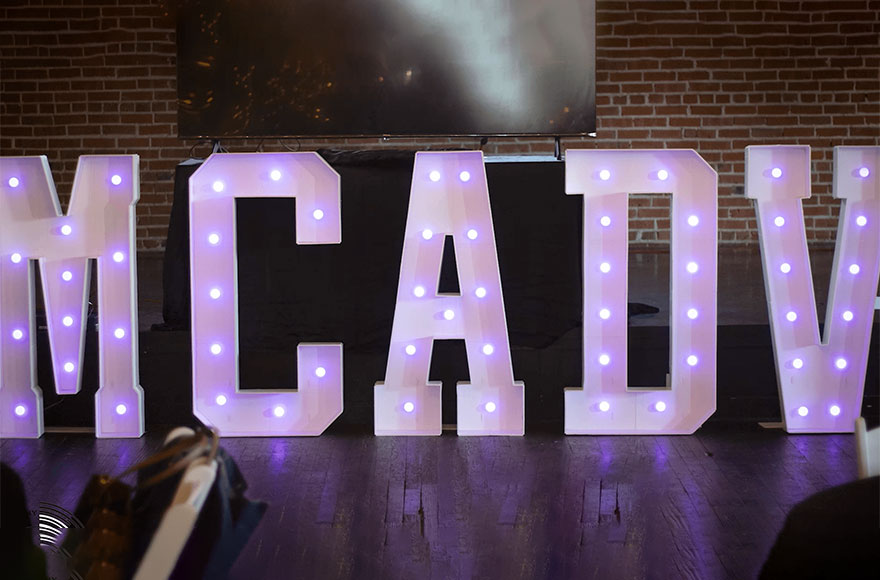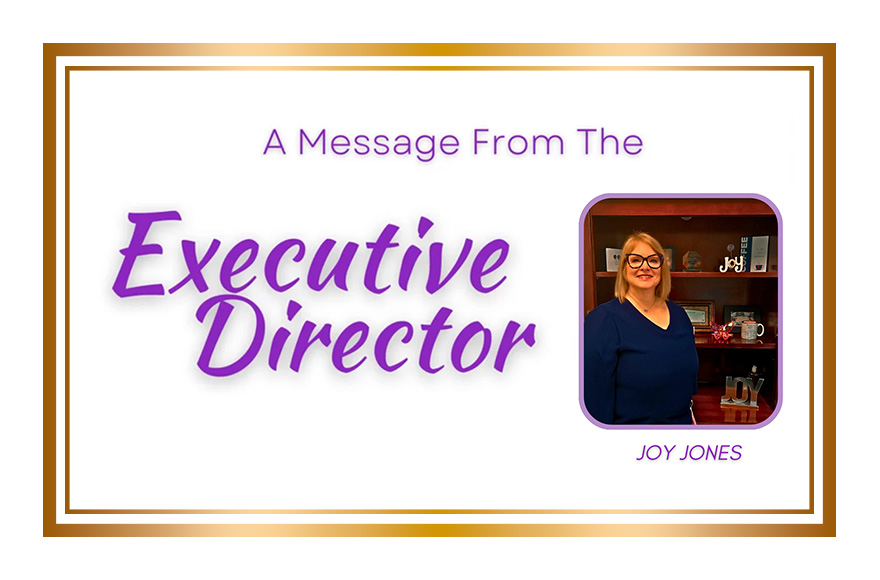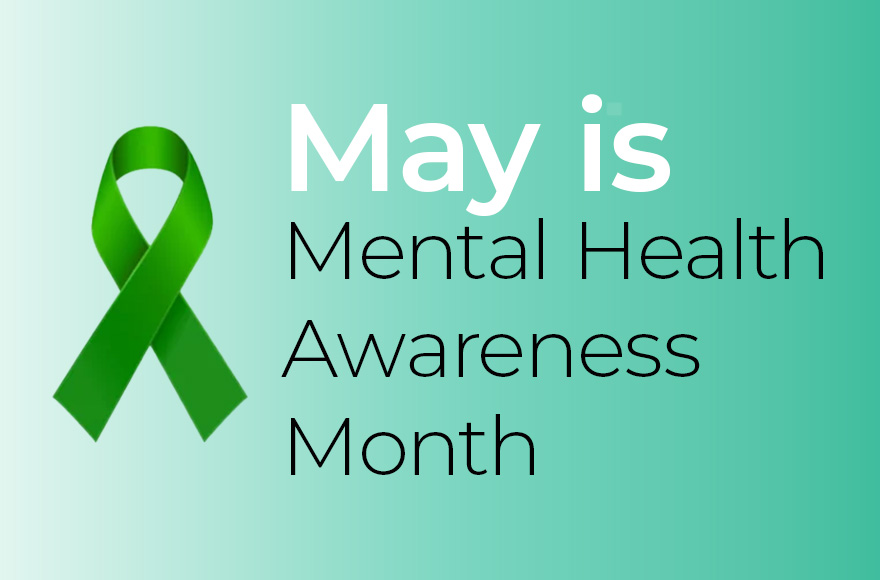
Mental Health Awareness Month
This past year presented many challenges and obstacles that tested our strength and resiliency. The global pandemic forced us to cope with situations we never imagined, and many struggled with our mental health as a result. The good news is that there are tools and resources available that support the well-being of individuals and communities. Some who had never experienced mental health challenges found themselves struggling for the first time.
The past year forced many of us to accept tough situations that we had little to no control over. If you found that dealing with the Pandemic impacted your mental health, you aren’t alone. We would like to share a few practical tools that can help improve your mental health. Change won’t happen overnight. However, by focusing on small changes, you can move through the stressors of the past year and develop long-term strategies to support yourself on an ongoing basis.
A great starting point for anyone who is ready to start prioritizing their mental health is to take a mental health screening at MHAscreening.org. It’s a quick, free, and confidential way to assess your mental health and begin finding hope and healing.
Source: Mental Health America (MHA)
Additional Resources
Brightline: The first comprehensive behavioral health solution designed to support kids, teens, and parents across a range of common family challenges.
BetterHelp: An online counseling platform that matches you with a licensed therapist with whom you may video call, live chat, or exchange messages with.
This Way Up: This Way Up provides online courses that teach practical, psychological skills designed to help you manage difficult emotions, tackle unhelpful thoughts, and gain control over symptoms of anxiety and depression.
Article: 6 Ways to Practice Self-care
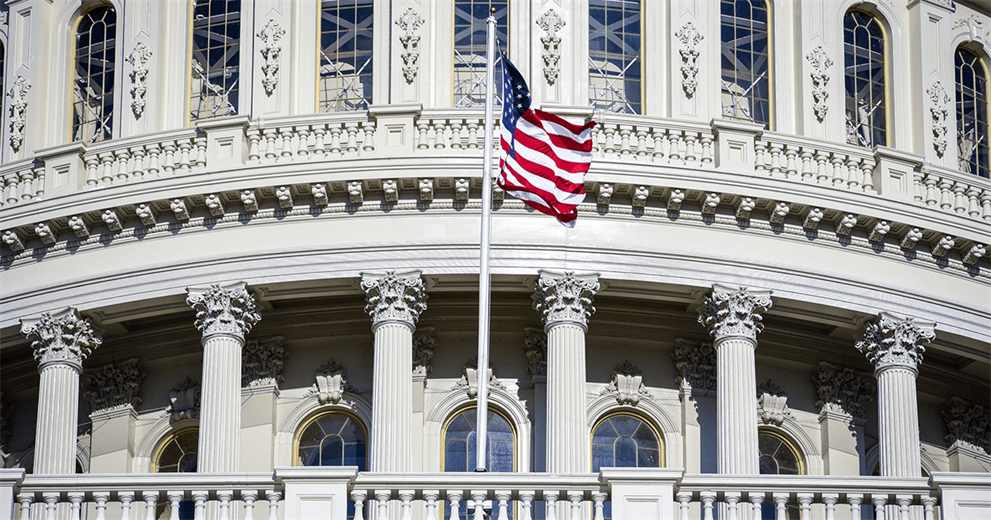
VOCA Funding Crisis
The Crime Victims Fund (CVF), established through the Victims of Crime Act of 1984, is the primary funding source for victim services throughout the nation. VOCA grants fund services for victims of all types of crime and are the largest source of federal grant funding for victim service providers. VOCA is not funded by tax payers; instead, it is funded by monetary penalties associated with federal criminal convictions, particularly for white collar crimes. Victims of violence are facing large cuts in funding to lifesaving programs. Funds into the Crime Victims Fund have dropped dramatically in the last several years, leading to a substantial cut to VOCA victim assistance grants. These grants provide lifesaving resources to victims of domestic violence and sexual assault.
Due to declining balances in the fund, the FY 21 “cap” is approximately $2 billion, which is 55% lower than it was three years ago, and 24% lower than 2020. This means that formula funding to states and territories to support victim assistance and compensation has decreased by 64% between 2018 and 2021. Between FY20 and FY21, the National Association of VOCA Assistance Administrators (NAVAA) estimates that formula funding to each state will decrease by 35% from their FY20 Award.
| FFY 2016 | FFY 2017 | FFY 2018 | FFY 2019 | FFY 2020 | FFY 2021 |
| $20,665,359 | $17,133,550 | $30,399,551 | $20,596,471 | $15,218,388 | $9,997,967 |
As DOJ decreases prosecution in favor of deferred prosecution agreements and non-prosecution agreements – the penalties from which go into the General Treasury – VOCA grants are similarly decreasing. H.R.1652/S.611, the bipartisan, bicameral VOCA Fix to Sustain the Crime Victims Fund Act of 2021 (“the VOCA Fix Act”) fixes this by redirection penalties from deferred prosecution and non-prosecution agreements into the VOCA fund. The House passed the VOCA Fix Act with overwhelming bipartisan support. We call on Senators Cindy Hyde-Smith and Roger Wicker to support victim services in Mississippi by co-sponsoring and supporting S.611, the VOCA Fix Act, to ensure critical victim services do not see further, catastrophic cuts. Please join the Mississippi Coalition Against Domestic Violence and our national partner the National Network to End Domestic Violence as we fight for the funding fix for VOCA. More information about this bill, in the form of a letter signed by more than 1,700 organizations and government agencies, can be found here.
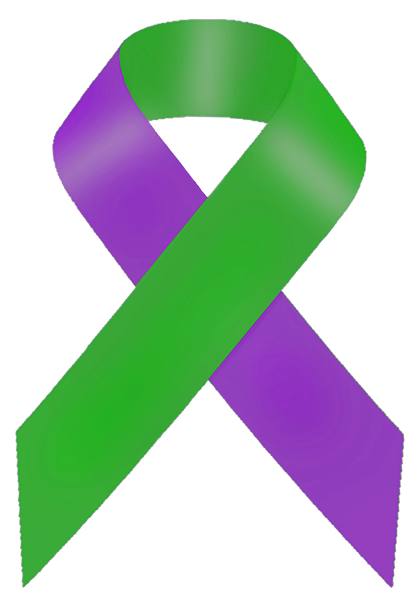
Mental Health and Domestic Violence
It’s a double-edged sword. Persons in abusive relationships are more likely to experience a mental health problem. At the same time, persons with mental health problems are more likely to be in relationships where they are abused.
According to the Journal of Health Management, “’Mental health includes our emotional, psychological, and social well-being. It affects how we think, feel, and act. It also helps determine how we handle stress, relate to others, and make choices. Mental health is important at every stage of life, from childhood and adolescence through adulthood.’ One’s ability to maintain their mental health can be changed by experiencing chronic stress, anxiety, fear, shame, and sadness that comes with domestic violence.”
The impact of abusive relationships manifests in a variety of ways. Some survivors adapt and respond to the abuse with fortified resilience. Others are unable to sustain the barrage of demeaning acts and consequently become plagued with some of the symptoms mentioned earlier. It is not unusual for a victim to blame themselves for their partner’s abuse, believing that something that his/her behavior prompted the abuser to respond with mistreatment.
It is safe to say that since that COVID-19 and the accompanying restrictions caused an increase in the domestic violence cases reported globally. Emerging data shows that since the outbreak of COVID-19, violence against women and girls, particularly domestic violence, intensified. In some cases, the fear, financial concerns, insecurity, loss of a job led to stress, altercations, fights, conflict, anger and violence. Mobility and the ability to freely interact with family and friends was restricted due to lockdown, reducing the ability to seek help.
Often, the long-term effects of interpersonal violence are chronic. It is not unusual for a person who is extricated from the abusive relationship to continue to experience residual symptoms. He/She may find it difficult to assimilate into a new relationship because of the depth and impact of trauma from the original relationship. They may also find normal social interaction to be challenging.
Thankfully, society is becoming more open to recognizing, discussing, and addressing mental health. The month of May has been designated to raise awareness about the importance of being healthy mentally and to encourage each of us to guard our mental health. If you or someone you know is experiencing an unhealthy relationship, visit our website www.mcadv.org to learn about organizations that are available to offer support.
Resources for this article are the American Psychiatric Association (psychiatry.org), Women’s Advocacy of St. Paul, MN (wadvocates.org), the National Center on Domestic Violence, Trauma and Mental Health (nationalcenterdvtraumamh.org), and the Journal of Health Management/Sage Journal (journals.sagepub.com)
Shelter Spotlight
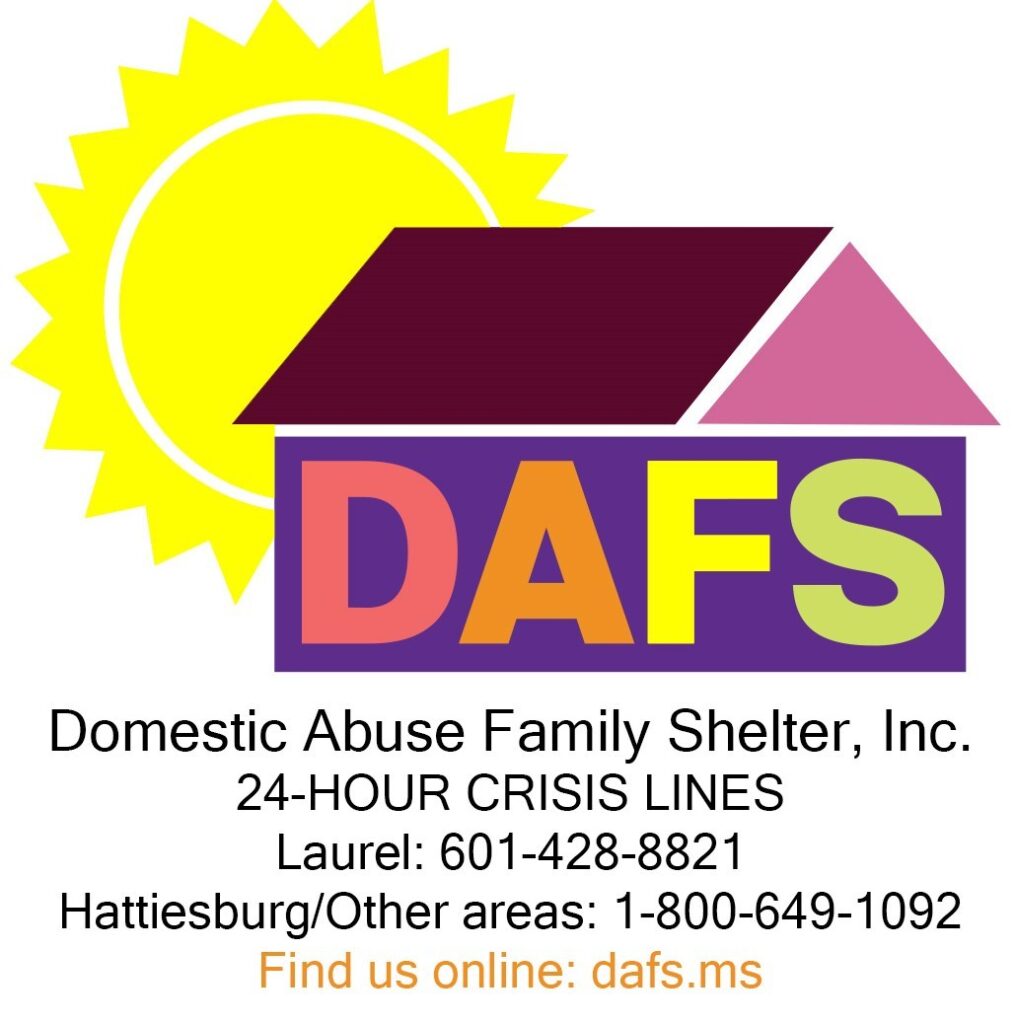
The Domestic Abuse Family Shelter (DAFS), serving the Pine Belt region, is completing an exceptionally busy spring. In addition to housing their first pets belonging to victims as part of the Red Rover/Greater Giving Charities project, they have participated in the Hattiesburg Half Marathon, Downtown Laurel En Plein Air, a sorority’s virtual gala. DAFS has also purchased a new property that could lead to cutting-edge services for survivors of domestic violence in southeastern Mississippi. This is all in addition to numerous in-person health fairs and other events where they shared their message.
The return to public gatherings has allowed DAFS to successfully fundraise while gaining incredible exposure through the various events. In fact, as part of the Hattiesburg Half Marathon, charities are given one mile to decorate, and DAFS couldn’t have asked for a better section. They were able to decorate a former railroad bridge across U. S. Highway 49 next to the University of Southern Mississippi in purple! Thousands of drivers on the highway and runners during the marathon were able to see DAFS’s message. En Plein Air also gave much exposure as they had artists from several dozen states, as far away as Montana, in Laurel supporting the shelters in the community. It was estimated 10,000 people visited Downtown Laurel that day to enjoy the various events.
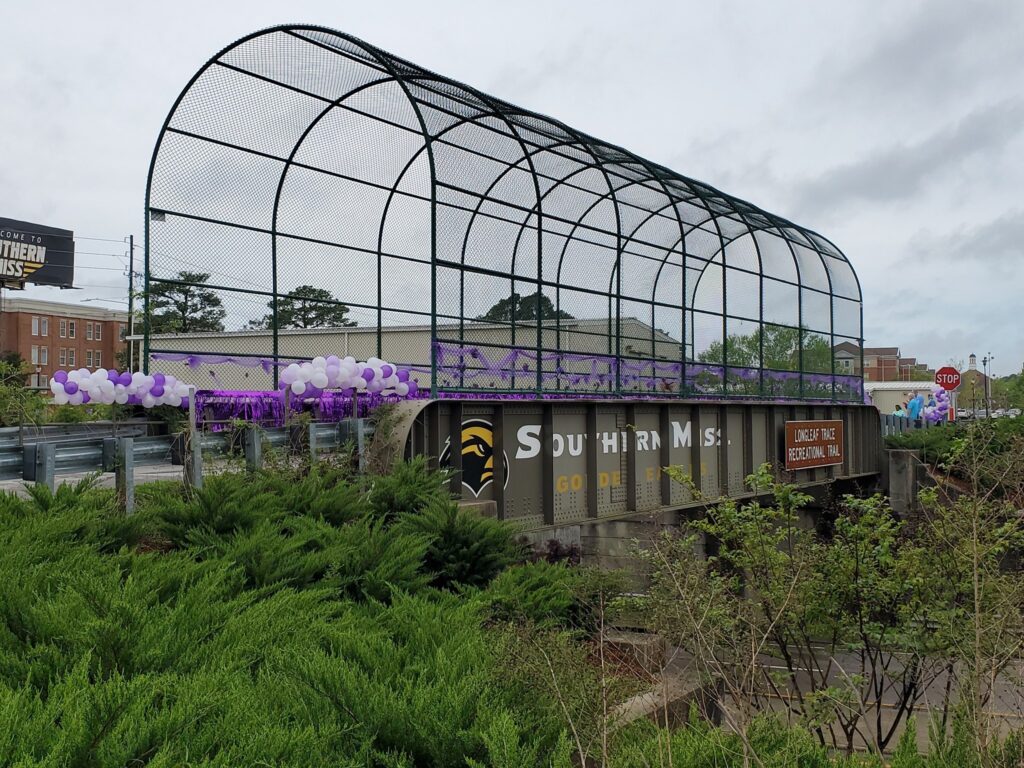
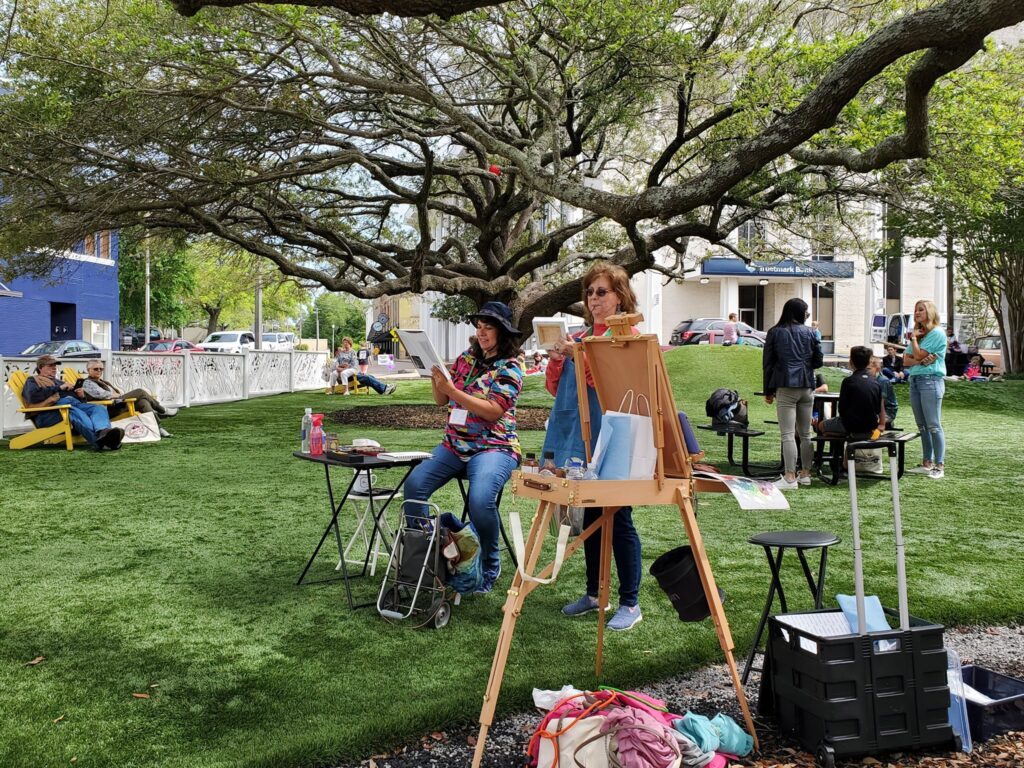
Finally, the closing of DAFS’s new property promises to be life changing for their clients. Located near their Hattiesburg shelter, the newest facility is a cozy, beautiful, inviting house that’s listed on the National Historic Registry. A grand entrance with soaring ceilings and beautiful stained-glass windows leads to a floorplan that is perfect for the new counseling office, board meeting space, classrooms, and sacred space to help clients not only recover, but thrive. DAFS will house a teacher for children, hold adult classes for budgeting and other life skills, and offer meeting space for clients to meet with the DAFS legal services coordinator. The house also has a beautiful “secret garden” that will be a place of solitude and refreshment in the future.
Website and Social Media Links
Domestic Abuse Family Shelter Website – dafs.ms
Facebook – @DAFSofMS

